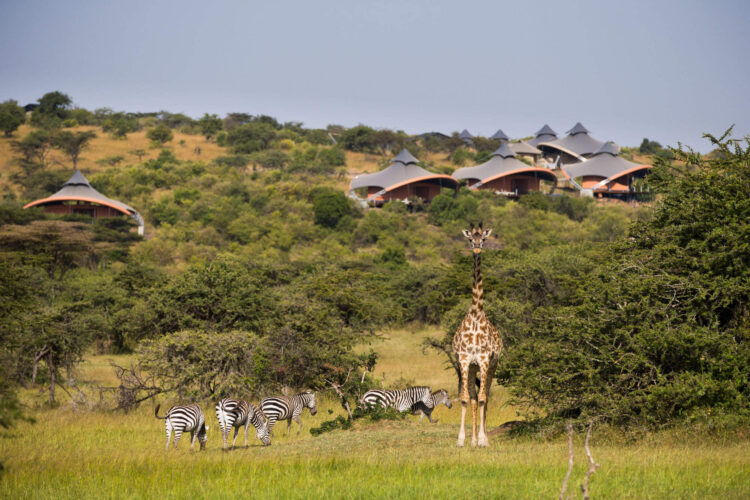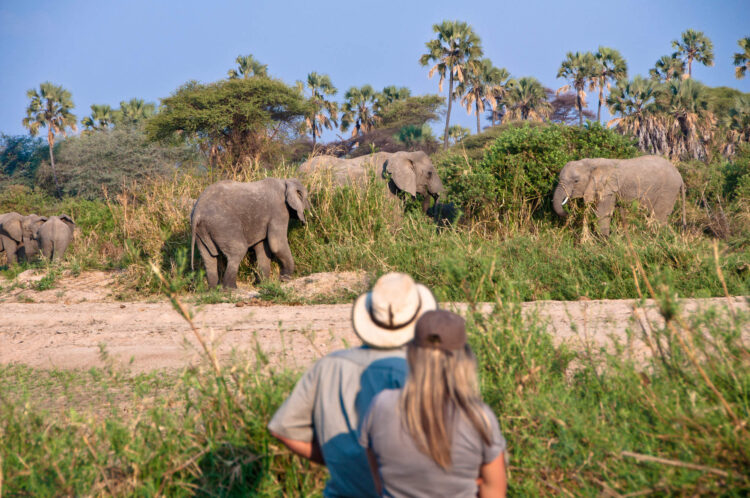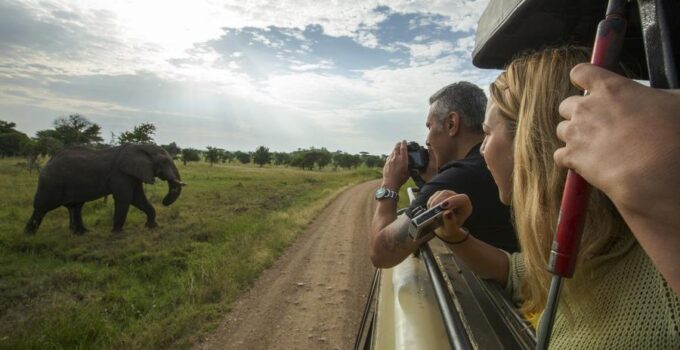Embarking on a safari is a journey into the heart of the wild, immersing oneself in the untamed beauty of nature and encountering majestic creatures up close. Whether you’re a seasoned adventurer or a first-time traveler, a safari promises an exhilarating experience that will leave you in awe of the natural world. From the vast savannahs of Africa to the lush rainforests of South America, safari destinations offer unique encounters with diverse ecosystems and iconic wildlife. But before you set off on this adventure of a lifetime, there are essential things to consider and prepare for.
Page Contents
Choosing the right safari destination and park
Selecting the perfect safari destination is vital to ensure a rewarding experience. Research various parks and reserves, considering the type of wildlife, landscapes, and activities offered. Each location boasts distinct features, from the iconic Maasai Mara in Kenya with its great migration, to the dense jungles of Ranthambore in India, home to the elusive Bengal tigers. Consult with reputable travel agencies, read reviews, and seek recommendations from fellow travelers to make an informed decision that aligns with your interests and conservation values.
Understanding safari seasons and weather patterns

Source: pinterest.com
Safari seasons play a significant role in your adventure. Research the best time to visit your chosen destination, as wildlife behavior and sightings vary throughout the year. Dry seasons often offer better nature viewing, as animals congregate around water sources, while wet seasons can be lush and green but make spotting nature more challenging. Additionally, be prepared for extreme weather conditions, such as scorching heat in deserts or sudden downpours in rainforests. Dressing in layers and packing appropriate gear will ensure you are comfortable in all conditions.
Packing essentials: Gear and clothing tips
Packing right can make or break your safari experience. Essential gear includes binoculars for enhanced wildlife viewing, a sturdy camera with a zoom lens for capturing those incredible moments, and a comfortable backpack to carry your belongings during game drives. Lightweight, neutral-colored clothing is recommended, as it helps you blend into the natural surroundings and provides protection from the elements. Don’t forget essentials like sunscreen, insect repellent, and a first-aid kit. Traveling light will make your safari more enjoyable, so resist the urge to overpack.
Wildlife photography: Capturing the perfect shot
Photography on safari is a unique challenge and an opportunity to document breathtaking moments. Understand your camera settings and practice your skills before the trip. Patience and timing are crucial, as nature behavior can be unpredictable. Avoid using flash, as it may disturb the animals and ruin the natural ambiance. Keep a respectful distance from wildlife, using long lenses to capture close-ups safely. Remember that observing animals in their natural habitat is a privilege; prioritize ethical photography by respecting their space and not disrupting their natural behavior.
Safari etiquette: Respecting animals and guides

Source: youtube.com
Responsible etiquette is essential to protect both wildlife and the environment. Follow the guidelines set by park authorities and your guides. Keep noise levels low to avoid disturbing animals and other visitors. Resist the temptation to feed or touch the nature, as this can be harmful to their health and disrupt their natural behavior. Stay inside the vehicles during game drives, as it ensures your safety and minimizes any impact on the animals’ territory. Show respect and gratitude towards your guides, who play a vital role in ensuring a memorable and safe safari.
Safety measures: Precautions for a secure trip
While safaris are exhilarating, they also come with inherent risks. Prioritize your safety by listening to your guides’ instructions and adhering to park regulations. Wild animals are unpredictable, and maintaining a safe distance is essential. Avoid standing up or making sudden movements during game drives, as this may startle the animals. Additionally, ensure you have comprehensive travel insurance that covers medical emergencies and evacuation, as medical facilities may be limited in remote safari locations. By taking appropriate safety measures, you can fully enjoy your safari experience with peace of mind.
Getting up close with safari vehicle options
The type of vehicle you choose can significantly impact your wildlife encounters. Open-sided jeeps provide unobstructed views and an immersive experience, allowing you to get closer to nature. On the other hand, closed vehicles offer protection from the elements and are ideal for colder climates or areas with insects. Consider group size and vehicle capacity to ensure a comfortable and personalized experience. Experienced guides and knowledgeable drivers can also enhance your adventure by navigating the terrain and helping you spot elusive wildlife.
Wildlife conservation: Responsible tourism practices

Source: youtube.com
Responsible tourism is the cornerstone of sustainable safari experiences. Opt for eco-friendly lodges and camps that prioritize conservation efforts and minimize their ecological footprint. Choose tour operators that support local communities and wildlife conservation initiatives. Engage in activities that promote education about wildlife and environmental preservation. Respect wildlife and their habitats by adhering to park rules and not disturbing their natural behavior. By supporting responsible tourism practices, you become a crucial advocate for the protection of these pristine wilderness areas and the incredible creatures that call them home.
Interacting with local communities and cultures
Safaris offer a unique opportunity to connect with local communities and immerse yourself in diverse cultures. Respect local customs, traditions, and beliefs, and seek to learn from the people you encounter. Engaging in responsible cultural tourism can contribute positively to the livelihoods of local communities and foster mutual understanding. Purchase authentic handmade crafts and souvenirs directly from local artisans, supporting their economic empowerment. By fostering genuine interactions, you enrich your safari experience and contribute to the sustainable development of the regions you visit.
Lasting memories: Preserving experiences and souvenirs

Source: pinterest.com
As your safari adventure comes to an end, consider how you can preserve the memories and experiences you’ve gathered. Keep a travel journal to record your thoughts and emotions, and document the wildlife you’ve encountered. Respect the environment by leaving only footprints and taking away cherished memories. Choose sustainable souvenirs, such as handmade crafts or photographs, over items made from wildlife products. Share your stories and photos responsibly on social media, using them to inspire others to appreciate and protect the incredible wildlife and natural wonders of our planet.
Conclusion
In conclusion, embarking on a safari is a thrilling adventure that offers unparalleled encounters with wildlife and nature’s wonders. By choosing the right destination, understanding safari seasons, packing appropriately, practicing ethical wildlife photography, and embracing responsible tourism, you can create unforgettable memories while preserving the pristine environments you explore. With respect for wildlife, local communities, and the environment, your safari experience will be not only life-changing but also a step towards sustainable travel that benefits our planet and its magnificent inhabitants. So, pack your bags, set out on your journey, and let the wilderness captivate your heart and soul. Happy safari!





